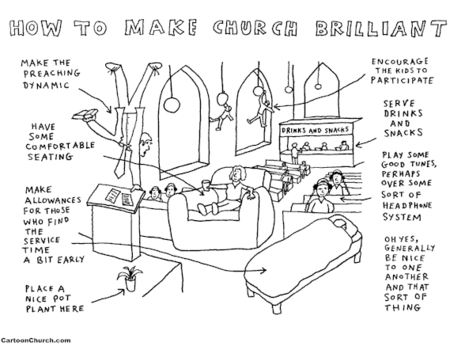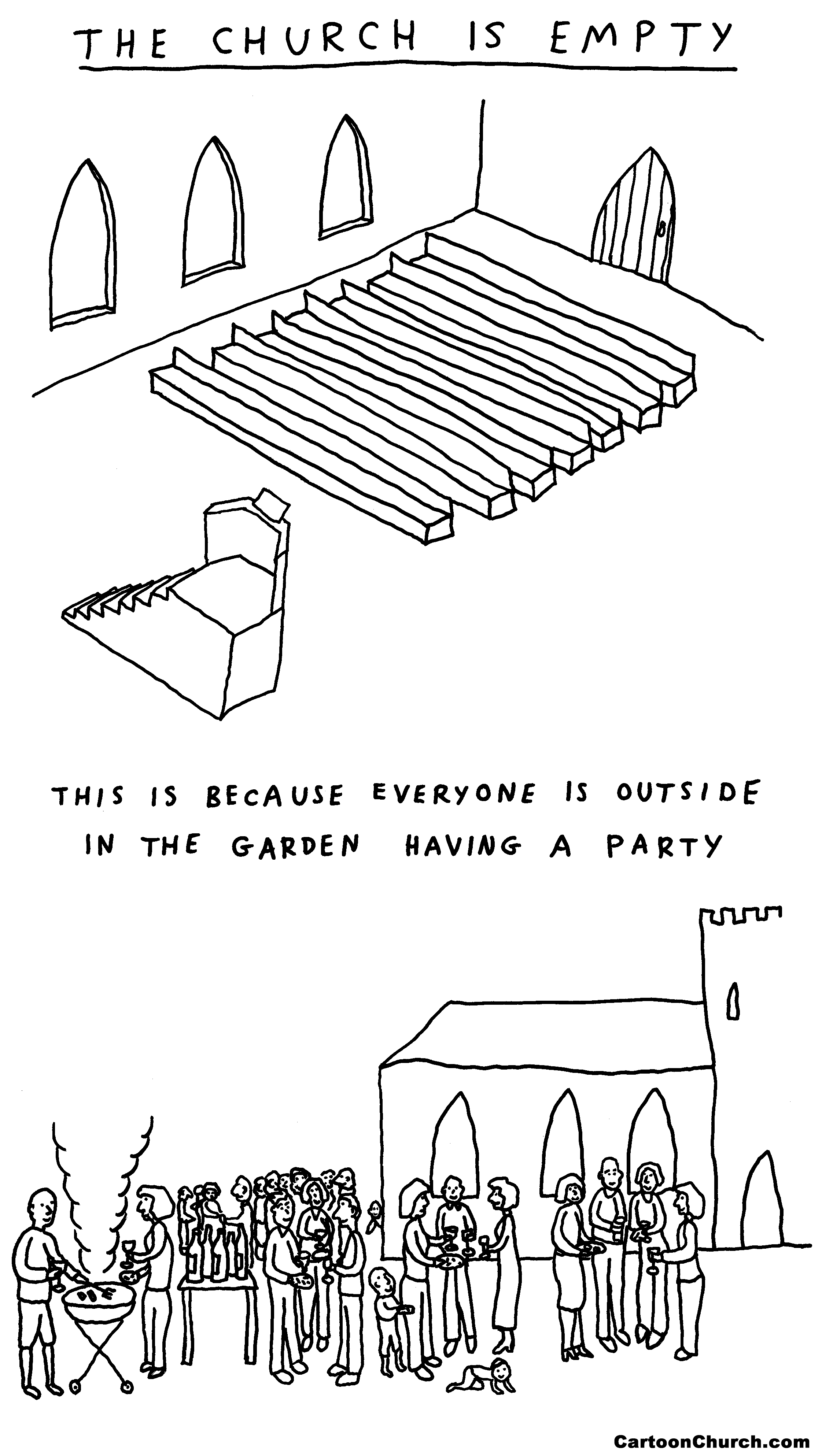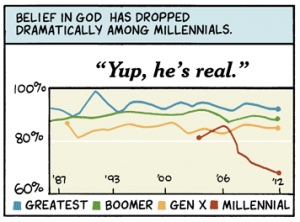Patheos is hosting a conversation about passing on the faith, and I encourage you to click through and read other participants in the conversation. My Sunday school class has been working through Hebrews, but as we encountered mention of people ceasing to meet together, our discussions have turned towards discussion of millennials, church attendance, communication and technology, and many other subjects related to this topic.
One of the things we discussed in my Sunday school class this past Sunday was the fact that, in some rural areas, a church is the social center of the community. As this changes, attendance is changing. Yet the earliest church was not a social center in the way that became the case much later in Europe and then the Americas.
VorJack made much the same point when he wrote:
Americans are under less social pressure to be part of a church than at any time since WWII. It seems less important to be part of a church community. In most areas there is little stigma attached to those who do not attend. Combine this with an increasing value on leisure time – since modern consumer capitalism is eager to give us new ways to spend it – and you see people who would rather stream Netflix on their tablets than get out of bed and go to that church social.
Without that pressure we are simply drifting back to a state in which a fair percentage of the population is unchurched. Not un-religious or un-spiritual, but unchurched. Belief has not declined, but belonging has.
Scot McKnight asked whether Christians gathering for coffee is church, and if not, then what makes a gathering “the church.” (See also the satirical Lark News item about a church becoming a coffee chain.)
Another thing that we discussed in my class yesterday is whether the modes of communication that were a main rationale for gathering people in the past make sense any longer. And if the main thing we need is actual time spent with other people (since notices, discussions, and sermons can happen all throughout the week using current technology), and maybe eating, then why do we not spend more of our Sunday morning focused on that?
It was also mentioned that celebration is one thing we cannot do effectively via the internet or on our own. And so perhaps this cartoon depicting an empty church has an important message:
I also emphasized in my class that, when young people seem addicted to their phones, in most cases they are addicted to being constantly connected to other people whom they consider important. If people feel that sense of connectedness, they will want to meet in person. But if we have a meeting that is not of that sort, and feels more like an obligation, then even adults will reach for their phones and text someone who means more to them than the speaker at the meeting.
There seemed to be a consensus that we naturally forge community with those with whom we share something important in common. Often our best friends attended school with us, or have a common hobby, or something else of the sort. Once we feel connected, we want to gather. But we also want to use that time to accomplish something. Sermons can be listened to anywhere, so perhaps we should explore new models, such as listening to sermons at home and discussing them when we gather? Or perhaps discussion can be online too, and over coffee informally on various occasions, and we should gather to feed the hungry and defend the oppressed?
Barney Zwartz’s and Pippa Evans’ articles about the creation of an atheist church are worth mentioning in this context. And it raises the question of whether lack of belief in God is a sufficient point of commonality to cause people to want to come together regularly and meet in person.
Of related interest, Fred Clark blogged about young-earth creationist dishonesty as a factory impacting the church and the disillusionment many young people feel. See also Billy Kangas’ post on the role of sacraments in keeping him Christian.
The overall takeaway message from all these recent discussions seems to be this: The church needs to adapt to changing needs and modes of communication, without simply trying to adopt a facade of relevance or pandering to demands and desires in a way that ceases to challenge those who are or would become a part of it.















